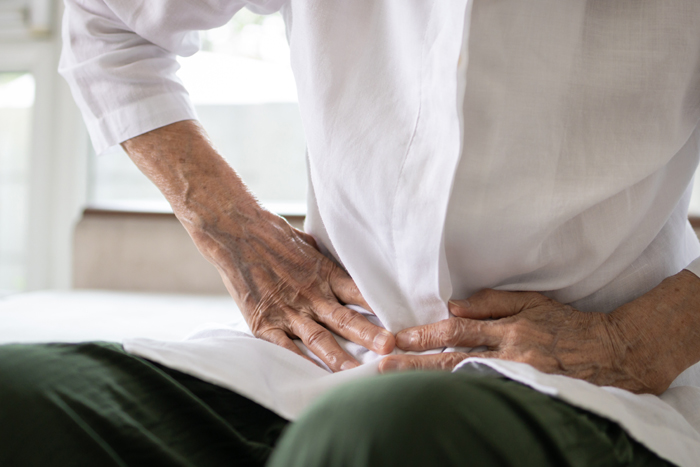Colorectal Cancer Surgery in Alwarpet, Chennai
The colon’s primary function is to process the leftover food after its preliminary breakdown in the small intestine. After processing, it absorbs water and eliminates the waste from the body. So, the medical disorders that interfere with the colon and rectum function lead to colorectal or gastrointestinal disorders. These may range from common treatable conditions to severe threatening disorders.
For diagnosis and treatment, you can visit any of the gastroenterology hospitals in Chennai. Alternatively, you can search online for a colorectal surgeon or gastroenterologist near me.

What Are the Different Colorectal Conditions?
Different conditions affect the colon and the rectum. Some of them include:
- Colon polyps: The polyps result from the abnormal growth of cells that protrude on the colon or rectum wall. Most of them are benign but have the possibility of developing into cancerous conditions.
- Colorectal cancer: Colon or colorectal cancer occurs when the sacs develop into tumors. You are more likely to get it if you have colon polyps or any hereditary cancer syndromes.
- Irritable Bowel Syndrome: It is a condition that causes abdominal pain, cramps, bloating, diarrhea and constipation.
- Inflammatory Bowel Disease: It is a chronic inflammatory condition of the digestive tract. The two forms are Crohn’s disease and Ulcerative colitis.
- Diverticular diseases: It is a condition that occurs when small pouches or sacs form and bulge through the weak spots on the lining of your colon. When some sacs get inflamed, it leads to diverticulosis.
What Are the Symptoms of Colorectal Conditions?
Symptoms of colorectal conditions include:
- Rectal Bleeding
- Blood can show up on the stools
- Abdominal pain or cramps
- Diarrhea and constipation
- Weight loss
- Fatigue
What Are the Causes of Colorectal Conditions?
Some colorectal conditions do not have specific causes. However, most of them may result from diet and inactivity. Other factors include:
- Age: Middle-age people are likely to develop colorectal problems.
- Family history: If any of the disorders like colon polyps, colon cancer, or others often run in the family. Alternatively, any other inherited gene mutations may generate hundreds of colon polyps.
- Dietary lifestyle: Certain foods or diet-related problems may increase the risk of colorectal problems such as defecation difficulties, irritable bowel syndrome, diverticular diseases, and colorectal adenomas.
- Smoking and alcohol: Excessive smoking and drinking can increase your risk of colon problems.
- Obesity: Being overweight can slightly increase the risk of colon diseases in both men and women.
When to See a Doctor
If you experience any colorectal illness symptoms, consult your gastroenterologist to know the exact cause and the colorectal type. Gastroenterologists perform a variety of tests and procedures for diagnosing different colorectal conditions. Some tests include colonoscopy, endoscopic ultrasound, capsule endoscopy, and barium enema.
Request an appointment at Apollo Spectra Hospitals, Alwarpet, Chennai.
Call 1860 500 2244 to book an appointment.
What Are the Treatment Options for Different Colorectal Problems?
Treatment options for colorectal problems vary depending on the type and the severity. Consult your nearby colorectal doctor for detailed information. Some of the treatment options include:
- Medications to reduce inflammation or to improve bowel functionality.
- Surgical treatments or chemotherapy
- Dietary or lifestyle changes
Request an appointment at Apollo Spectra Hospitals, Alwarpet, Chennai.
Call 1860 500 2244 to book an appointment.
Surgical Procedures
- Bowel resection is a surgical method performed to remove the diseased part of the colon and the rectum. However, this operation requires a colostomy. During a colostomy, colon surgeons create an artificial opening outside the body to excrete the waste out of the body.
- Ileoanal anastomosis surgery is a treatment option used to treat ulcerative colitis. This type of surgery does not need a colostomy.
Conclusion
Most colorectal problems have significant mortality and morbidity with a western lifestyle. Therefore, maintaining a dietary lifestyle is essential for the proper functioning of the colon and rectum. In addition, early diagnosis may help to prevent or slow down the condition from developing into cancer. Consult a gastroenterologist near you for diagnosis and treatment.
Risks of surgery include wound infection, leakage, bleeding from the surgical sites, abdominal cavity infection, or inflammation at the treatment site.
To reduce your risk of developing colorectal problems, make some dietary and lifestyle changes. For example, avoid carbonated beverages, chewing gums to prevent excessive bleeding and abdominal bloating. In addition, avoid certain foods that are likely to form gas. If you are obese, try to reduce the overweight and do some physical exercises that tighten the abdominal muscles. It helps to prevent abdominal distention.
Yes, you can take probiotics after being prescribed by your gastrologist. Probiotics reduce the colon pH level, helping in faster excretion of the stools. They usually help in relieving diarrhea, bloating or gas, and help in regular bowel movements.
Symptoms
Our Top Specialities
NOTICE BOARD
CONTACT US
CONTACT US
 Book Appointment
Book Appointment


.svg)
.svg)
.svg)
.svg)








